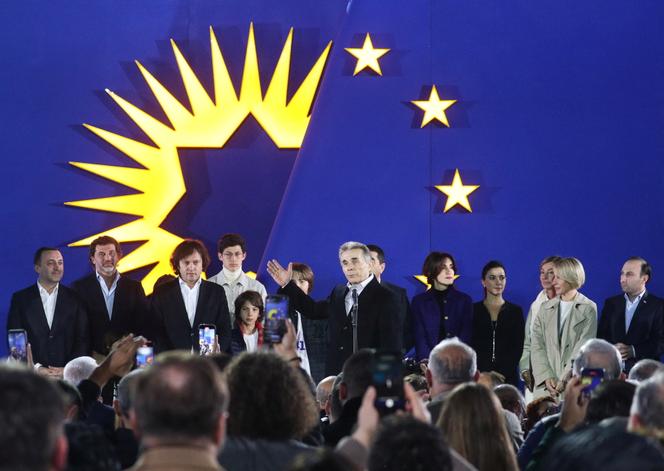


Georgian protesters marked their 140th day of opposition against the government on Friday, April 18, but their movement is weakening in the face of escalating repression. With few exceptions, only a few thousand people, and sometimes just a few hundred, now participate in the daily gatherings in this former Soviet republic in the Caucasus - with a population of 3.7 million - compared to several tens or even hundreds of thousands in the fall of 2024.
According to political analyst Guga Chomakhidze, the opposition parties, weak and divided, share the blame. "They fail to present a united front and propose a plan for change," noted the independent researcher based in Germany. "This frustrates people who no longer want to take to the streets and risk being fined or arrested for nothing."
The opposition parties themselves are in the crosshairs of the authorities. A parliamentary commission created in February by the ruling party Georgian Dream, which sits alone in Parliament, is currently conducting a controversial investigation that could lead to the opposition's expulsion. Initially, the commission was tasked with investigating the United National Movement (UNM), the party of former president Mikheil Saakashvili (currently in prison), during his time in power (2004-2012). Georgian Dream had vowed repeatedly to punish the UNM, accusing it, among other things, of provoking the August 2008 war with Russia. But the commission's mandate was later expanded to cover the entire period after 2012 – the year Georgian Dream came to power – thus targeting the entire opposition. The ruling authorities have threatened to use the commission's findings to ask the Constitutional Court to ban all of the opposition parties.
You have 68.52% of this article left to read. The rest is for subscribers only.
